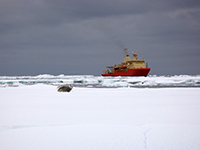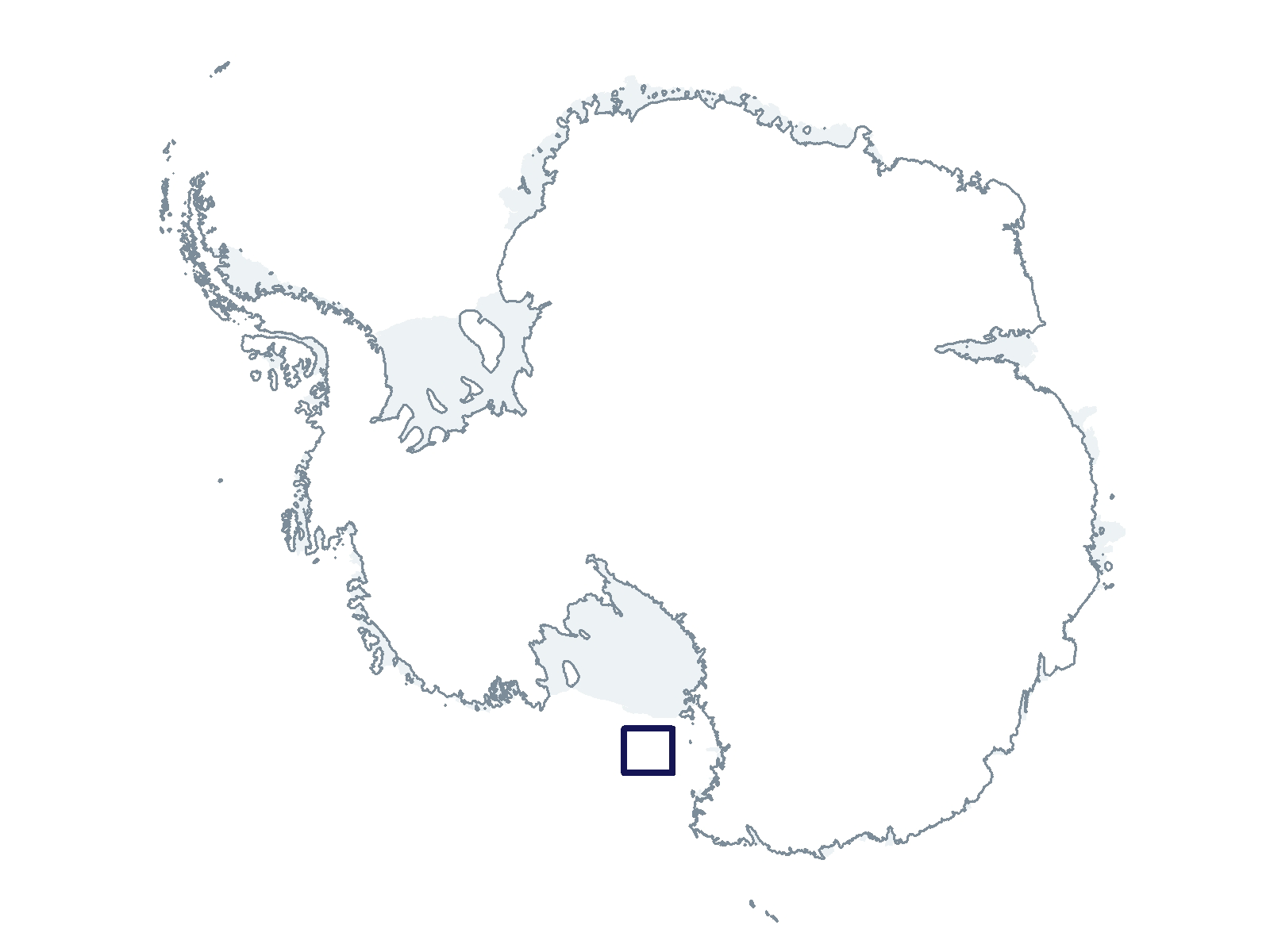2022-2023 USAP Field Season
Project Detail Project TitleUnpinning of the Ross Ice Shelf from Ross Bank Summary
Event Number:
Program Director:
ASC POC/Implementer: Principal Investigator(s)
Dr. Philip Bart
Location
Supporting Stations: RV/IB Nathaniel B. Palmer DescriptionThis team will investigate the how, why and when the Ross Ice Shelf (RIS) unpinned from Ross Bank to assess ice sheet and ice shelf behavior during a recent unpinning event. Previous studies have estimated the timing of West Antarctic Ice Sheet flow changes that occurred during the past millennia based on changes in the pattern of flow stripes and rift tracks preserved on the RIS. Ongoing studies of a recently completed ice core by the Roosevelt Island Climate Evolution project are likely to provide a high-resolution record of atmospheric and ice-surface elevation changes. It is equally important to understanding the past ice shelf dynamics around Ross Bank, an essential part for determining the past behavior of RIS and the future susceptibility and response of unpinning. As such, the Ross Bank study will provide some of the needed ground truth proof for any physical or numerical model prediction of cause-and-effect relationships associated with ice-shelf unpinning. In addition to the scientific broader impacts on ice sheet dynamics and sea level rise, this study provides the opportunity to train four graduate and four undergraduate students on geophysical and geological data acquisition, processing, sampling, interpretation and presentation. Field Season OverviewThe eight-person science team will deploy to the Ross Bank and Pennell Basin areas on the RV/IB Nathaniel B. Palmer (NBP) for two cruises with 30 science days each from mid-December to mid-January, and mid-January to early March. Ten days of the expedition will be used for seismic. A short port call to McMurdo Station will be necessary at the conclusion of the seismic surveys to satisfy permit requirements. After departing McMurdo Station in 2023, 16 days will be used to conduct multibeam surveys of Ross Bank. Four science days will be used to collect samples from selected stations at Ross Bank for sedimentary, diatom and in situ benthic foraminifera analyses. The team will collect sediment using the Piston Corer, Jumbo Piston Corer, Box Corer, Mega Corer, Smith MacIntyre grab, and Epibenthic Sled. Seafloor imagery via the Yo-Yo Camera and companion baseline water-column analyses with CTD (connectivity, temperature, and depth) rosettes and plankton tows will be co-acquired. The scientific party will edit and process the multibeam bathymetry and seismic data onboard.
Deploying Team Members
|
2022-2023 Science Planning Summary



For USAP Participants |
For The Public |
For Researchers and EducatorsContact UsU.S. National Science FoundationOffice of Polar Programs Geosciences Directorate 2415 Eisenhower Avenue, Suite W7100 Alexandria, VA 22314 Sign up for the NSF Office of Polar Programs newsletter and events. Feedback Form |



